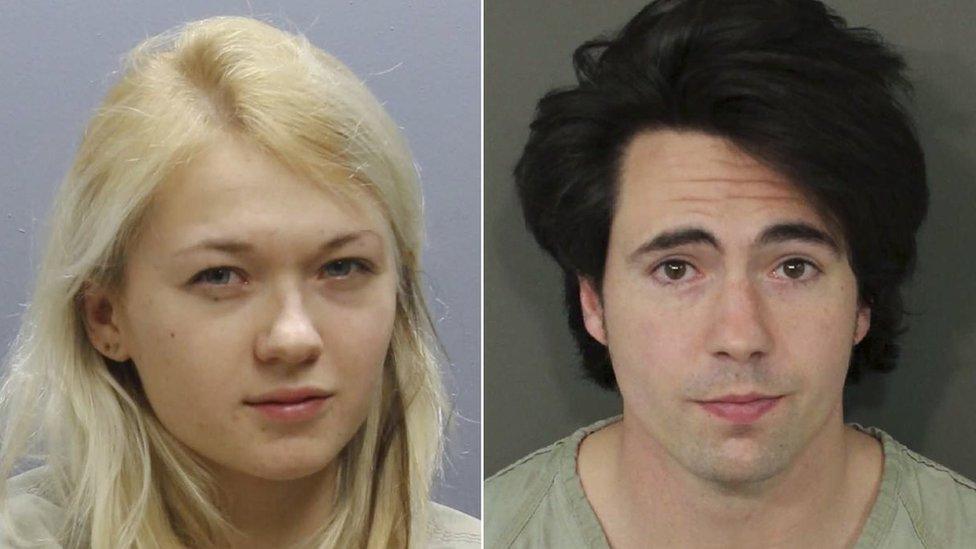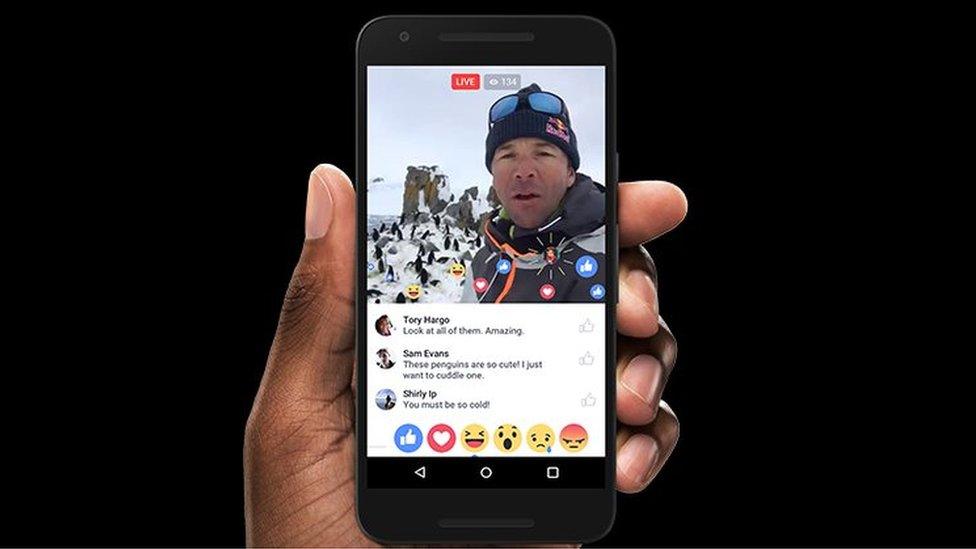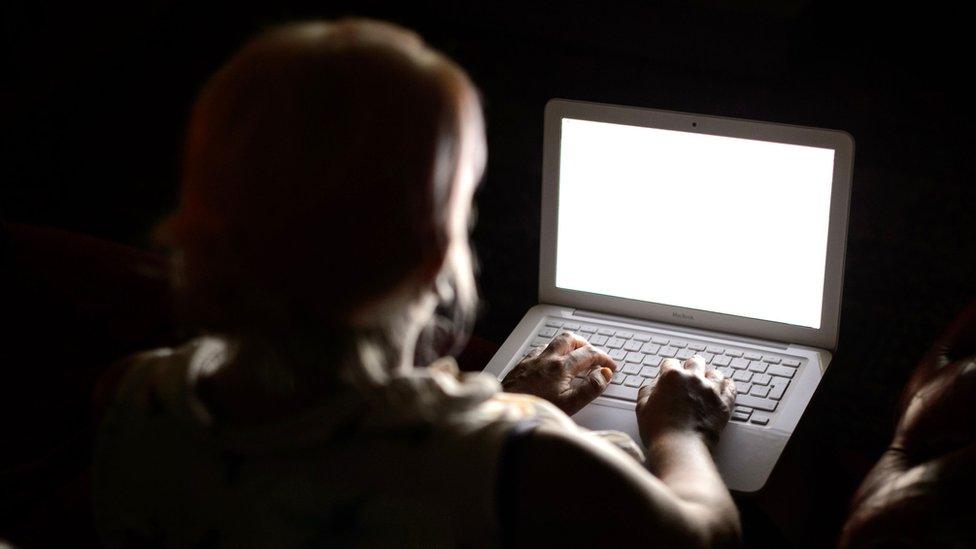Woman accused of live-streaming rape on Periscope
- Published

Marina Lonina is accused of filming her boyfriend Raymond Gates sexually assaulting a teenager
A woman from Ohio has been charged with streaming the rape of a teenage girl via Twitter's live video app Periscope.
The offence is alleged to have occurred two months ago and was brought to the authorities' attention by someone who said they had seen the broadcast.
The accused's lawyer says that she "categorically" denies the charges.
An expert said the case highlighted the impossibility of controlling content on live-streaming services, which are gaining in popularity.
According to the indictment, the sexual assault took place in the city of Columbus on 27 February.
Marina Lonina is also accused of taking a photo of the 17-year-old in a state of undress the previous night.
Lonina's boyfriend, Raymond Gates, has been accused of carrying out the assault. It is not yet known how he intends to plead.

Periscope attracted more than 10 million users within a year of being launched
The two face charges of rape, kidnapping, sexual battery and pandering sexually-oriented matter involving a minor.
Inaccurate systems
Twitter declined to comment. Periscope's guidelines say that graphic content is banned, external.
But this is not the first time the app has been linked to an alleged offence.
Earlier this month, it was reported that police in London, external had intervened after a fight between two rival gangs had been arranged via the app.
Other incidents include:
A woman who streamed herself, external as she drove home while intoxicated
A murderer who broadcast footage of himself, external from a US jail for several days before officers confiscated his phone
Teenagers who were arrested after streaming footage of themselves robbing, external a van in Utah
The app has hosted more than 100 million broadcasts since it launched last year, the vast majority of which are innocuous.
But the issue of live-streamed crime could become more common as the activity becomes more mainstream.

Facebook announced on Tuesday that it is giving more prominence to live video streams
Earlier this week, Facebook announced it was adding a tab to its app to help users find live-streamed videos.
The social network had already altered the algorithm of its news feeds to prioritise such feeds.
"The volume of content being created and uploaded every day is far too great to be regulated manually and automatic systems are simply too inaccurate to be practical," commented Dr Joss Wright from the Oxford Internet Institute.
"There is almost no practical way to prevent content like this being uploaded and shared if people want to do it and any system to do so would also have serious implications for freedom of expression and the publication of legitimate but controversial content.
"The internet has undoubtedly made this case worse for the alleged victim. But as with other real-world crimes, prevention is not always possible."
- Published14 April 2016

- Published3 March 2016
